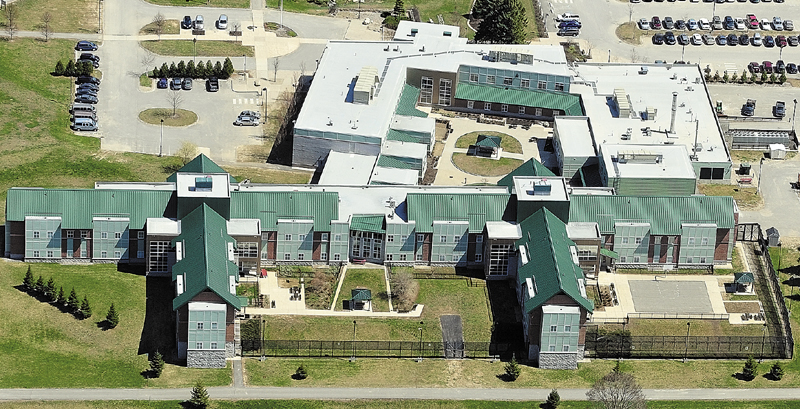AUGUSTA — More than 500 Mainers are on a waiting list for the most basic of mental health services with an average wait of two months and some waiting nearly a year.
The long wait is in apparent violation of a long-standing consent decree that settled a lawsuit brought two decades ago by mental health advocates that holds the state mental health system to agreed-upon standards of care.
One part of the consent decree, according to former Chief Justice Daniel Wathen, who oversees the decree and files regular reports on its implementation, requires the state Department of Health and Human Services to assign a caseworker to people with severe and persistent mental illness to assist them in accessing services in the community within seven days of a request for a caseworker.
Wathen, in his court master’s report for the period of January to June 30, wrote, “The most persistent and glaring example of non-compliance with the consent decree is the department’s failure to promptly provide timely community integration services for those with severe and persistent mental illness.”
Wathen said six months ago that there were 387 people on a waiting list for assignment of a caseworker with an average wait of more than 40 days and some waiting up to 300 days.
“Today, the situation is worse,” Wathen’s most recent report, released Thursday, notes.”543 people, both class members (the term for former Augusta Mental Health Institute patients covered by the terms of the consent decree) and non-class members including those who are MaineCare eligible and those who are not, are now on the wait list, and they are waiting an average of 58 days, with some waiting more than 350 days. Clearly the trend is in the wrong direction, although it may be influenced to some extent by the funding uncertainty that accompanies the budget process and the end of the fiscal year.”
Guy Cousins, director of the state Office of Substance Abuse and Mental Health Services, said a lack of adequate funding is part of the problem and seconded Wathen’s suggestion that it is exacerbated by some service providers who are hesitant to take new clients into programs with uncertain funding.
However, money is only part of the problem, Cousins said. Also part of the problem are processes that don’t get people seeking treatment into the mental health system quickly enough.
Cousins said a pilot program the state is trying with six service providers shows promising signs of being able to provide people with access to mental health services sooner.
He said the change involves streamlining providers’ intake systems to get people treatment sooner, when it is more effective.
He said in just one week, from July 8 to 15, the pilot program reduced the waiting lists of the six providers by 19 percent.
“It’s incredibly encouraging, the work this pilot program is doing,” Cousins said Friday. “If they’re able to sustain that, we’ll see that shrink even further, and push (the new system) out to other providers. In the next six-month (court master’s) report, we should have some incredible numbers to report.”
Wathen noted that in the last year, the state has improved its capacity to track waiting lists, and he also acknowledges the pilot project is underway and could improve things.
The consent decree has not been in “active supervision” since Wathen’s 2011 recommendation that other adequate mechanisms exist to monitor operations at Riverview Psychiatric Center, the current state mental hospital in Augusta.
However, he notes in his report that deficiencies reported at the center since March “could constitute a violation of the consent decree and serve as the basis for requesting reinstatement of active supervision. … I do not at this time make such a request.”
Wathen said the state has a plan of correction to address the deficiencies and already has taken steps to address safety concerns at Riverview.
The deficiencies cited by Wathen’s report include two “serious security situations.” One was an incident in which a client assaulted a staff member, and the other, Wathen’s report states, “involved jeopardy to the health and safety of patients arising from the actions of correctional officers providing unit security.”
Mary Louise McEwen, superintendent of Riverview, said she could not discuss details of the incidents, but the issues they raised are being addressed by guidelines clarifying the roles of the staff and correctional officers at Riverview, including a standard that the staff call 911 for police help if a situation arises that staff members can’t handle safely, such as a client brandishing a weapon.
The corrections officers at the center are a new addition, meant to improve safety in the forensic unit, which holds people who have committed violent or serious criminal acts but have been deemed not responsible for their actions because of mental incompetence.
McEwen said funding remains a challenge in trying to improve, or at least maintain, mental health care in Maine.
“Being under the consent decree helps in that regard. The court master advocates for us to maintain a level of funding,” McEwen said. “So (Wathen) is somebody in our court, so to speak. Every year, obviously, we have to go back and make sure we have an adequate budget to stay at the same level of services we’re currently providing.”
McEwen and Wathen noted legislation passed by the last Legislature could help, including L.D. 1433, which allows the State Forensic Service to observe an incarcerated person for evaluation purposes at a correctional facility, rather than at Riverview. Also, L.D. 251 makes bringing contraband, such as something that could be used as a weapon, into a state hospital subject to the same consequences as bringing contraband into a prison.
L.D. 1515, which would provide mental health services at the Maine State Prison rather than Riverview, was passed by both the House and the Senate. McEwen said that could improve conditions and free space at Riverview.
However, the changes would cost about $3 million to implement, and the Appropriations Committee didn’t fund the legislation. McEwen said the proposal has the support of Gov. Paul LePage and Health and Human Services Commissioner Mary Mayhew, and she’s hopeful it will be funded eventually.
Wathen’s report says Riverview has been challenged by a substantial increase in the number of forensic patients since 2012, a challenge exacerbated by security concerns on the most acute wing of the forensic unit, where two full-time corrections officers are on duty around the clock. Wathen said the “substantial increased security costs are funded from the hospital’s existing budget.”
Wathen said the hospital’s funding remains adequate, but barely so. He said DHHS plans to supplement its $2.7 million in funding with $2 million carried over from past budgets, which, together, nearly bring mental health services up to full funding. However, no funds are designated for those programs in 2015.
“With full funding available for (fiscal year 2014, the Office of Substance Abuse and Mental Health Services) has a unique opportunity to reduce the wait lists for services and demonstrate its ability to achieve a reasonable degree of compliance with the consent decree, thereby providing a track record to persuade the Legislature to fully fund mental health services in (fiscal year 2015) and beyond,” Wathen’s report concludes. “This fiscal year could be a year of accomplishment.”
Keith Edwards — 621-5647
kedwards@centralmaine.com
Send questions/comments to the editors.





Success. Please wait for the page to reload. If the page does not reload within 5 seconds, please refresh the page.
Enter your email and password to access comments.
Hi, to comment on stories you must . This profile is in addition to your subscription and website login.
Already have a commenting profile? .
Invalid username/password.
Please check your email to confirm and complete your registration.
Only subscribers are eligible to post comments. Please subscribe or login first for digital access. Here’s why.
Use the form below to reset your password. When you've submitted your account email, we will send an email with a reset code.